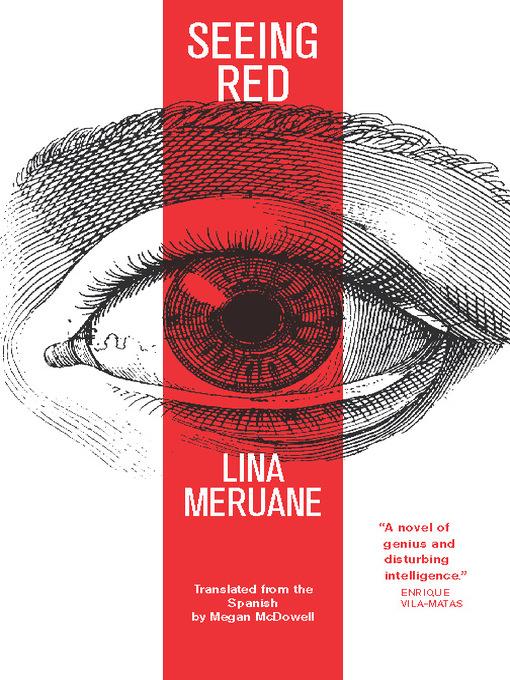
Seeing Red
کتاب های مرتبط
- اطلاعات
- نقد و بررسی
- دیدگاه کاربران
نقد و بررسی

Starred review from December 21, 2015
Blurring the lines between fiction and memoir, Meruane’s first novel translated into English explores mortality, identity, and personal transformation. Lina, a fictionalized version of the author, experiences a severe ocular hemorrhaging that impairs her sight. The dark blood clouding Lina’s eyes makes it difficult for her to move around her New York City apartment or navigate the busy streets alone. She must rely heavily on her lover, Ignacio. While trying to accept the possibility that she might be blind permanently, Lina and Ignacio visit her family in Santiago, Chile. The trip home prompts Lina to examine the limitations of her ailing body, the future of her writing and doctorate studies, and the effect her illness has on those around her. As Lina’s condition worsens and she faces surgery, the strength of her relationship with Ignacio is tested. The book is composed of short scenes with titles, much like flash fiction. These brief glimpses into Lina’s life accumulate to depict a woman trying her best to hold on to a sense of self as her world disappears from sight. McDowell’s translation emboldens the intensity and lyricism of Meruane’s visceral prose, littered with sensory details and savory descriptions of the smells and sounds surrounding Lina as her vision fails. This is a penetrating autobiographical novel, and for English-Language readers this work serves as a stunning introduction to a remarkable author.

January 1, 2016
A female writer who is losing her sight probes the meaning of language, genre, and the reader's expectations. This intriguing short novel by Chilean writer Meruane is her first to be translated into English. It won Mexico's prestigious Sor Juana Ines de la Cruz Prize in 2012. Meruane, who teaches at New York University, tells the traumatic story of Lucina, a Chilean writer also living in New York. The 60ish short, un-capitalized chapters are simply titled: "burst," "that face," "sleepwalker," etc. Blending fiction and autobiography, the narrator and Meruane both suffer from diabetes, which can cause a hemorrhagic stroke affecting the eyes. The story is fairly simple, the telling intricate. While enjoying herself at a party, Lucina suddenly experiences a "firecracker" going off in her head. Blood begins spilling forth in her eye, the "most shockingly beautiful blood I have ever seen." It's both outrageous and terrifying and only she can see it. Her other eye is also affected; she's virtually blind. Lucina and her partner, Ignacio, are in the midst of a move to a new apartment. She now needs help to get around, to relearn the "geography of things." When she's finally able to get an appointment with her doctor, he tells her it may not clear up. She travels to Santiago to visit family and refuses to see a doctor there. She thinks about her country as being ill, too. Back in New York, she's told her eye is still bad and may never heal: "Don't move doctor, I whispered. Wait for me here, and I'll bring you a fresh eye." Throughout, Lucina (and Meruane) meditates upon illness and its relationship with the process of writing and going blind. Meruane, whom Roberto Bolano called one of the "greats in the new generation of Chilean writers," fashions a challenging metafiction that ventures into fresh and provocative places.
COPYRIGHT(2016) Kirkus Reviews, ALL RIGHTS RESERVED.

























دیدگاه کاربران